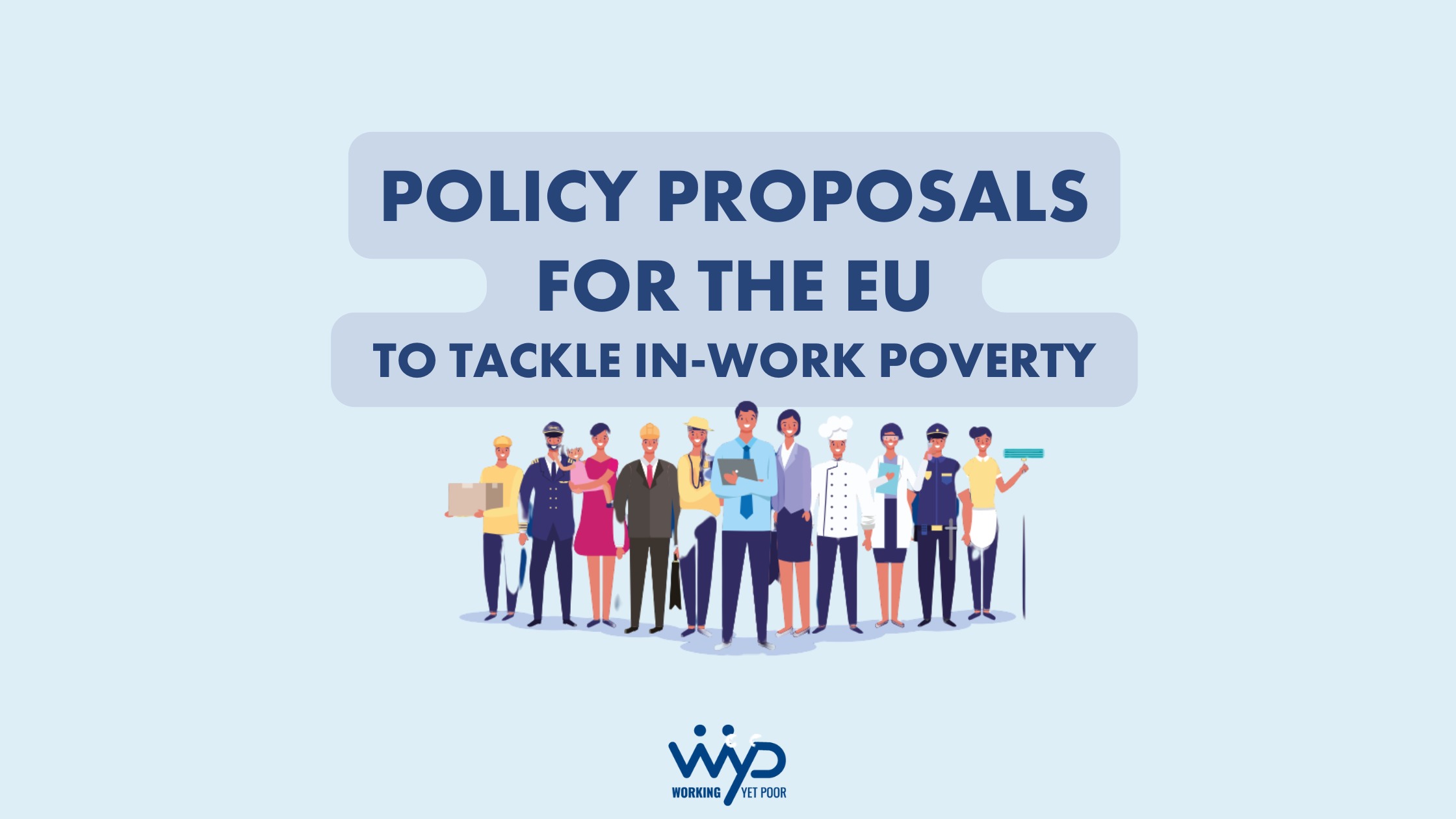The purpose of this report of the WorkYP project is to make general policy recommendations for the European Union to tackle in-work poverty (IWP), building on the main findings of the project, and considering the European Pillar of Social Rights (EPSR) principles, which point to key issues in the enhancement of EU social citizenship.
Main findings from the WorkYP project: selected policies and instruments to combat In-Work Poverty
- All the WorkYP countries apply a minimum wage, either legally determined or set through collective bargaining.
- Vocational education and training schemes have crucial potential to enable and encourage workers to obtain relevant skills and find employment that matches their level of qualification.
- From an IWP perspective, in-work benefits are likely to have regressive redistributive effects.
- Qualifying periods required to access unemployment insurance may lead to the exclusion or unfavourable treatment of workers in certain VUP groups.
- Guaranteed minimum income schemes can also help to reduce IWP among VUP Groups workers by allowing them to supplement low working incomes.
- Benefits related to economic, family or health reasons provide some degree of temporary wage replacement, but certain VUP groups may not necessarily be eligible.
- Benefits granted structurally without work or job search criteria are intended to compensate for households’ specific expenses such as housing, family-related and health and long-term care costs.
Policy Proposals to implement EPSR’s principles
- Improving the policy status and awareness of IWP
- The Revised Social Scoreboard (RSS) of the EPSR should be enhanced to better highlight IWP
- Tackling IWP should be a key cross-cutting concern mainstreamed in the EPSR and in core structural employment and social policy reforms in the European Union and its Member States
- A more gender-sensitive, individualised poverty approach is needed to resolve the gender paradox of IWP
- Improving the assessment of IWP
- EU social indicators and data sources should be enhanced to provide a more in-depth assessment of IWP
- More attention should be paid to the dynamics of IWP and notably the persistence in IWP situations
- The Commission and the European bodies could usefully continue to develop certain features related to understanding and measurement of non-standard employment and particularly of precarious employment and the so-called new forms of employment
- Enhancing information related to the abovementioned matters could be supported through different channels at EU level
- Ensuring access of low-skilled workers and non-standard workers to learning and training
- The access to and availability of life-long learning (LLL) and VET for non-standard workers should be considered as a cross-cutting challenge in all strategies related to the acquisition and development of skills by vulnerable groups
- Improving social protection of vulnerable workers
- Including IWP as a cross-cutting issue in a wider consensual debate on social investment and the future of work and social protection



